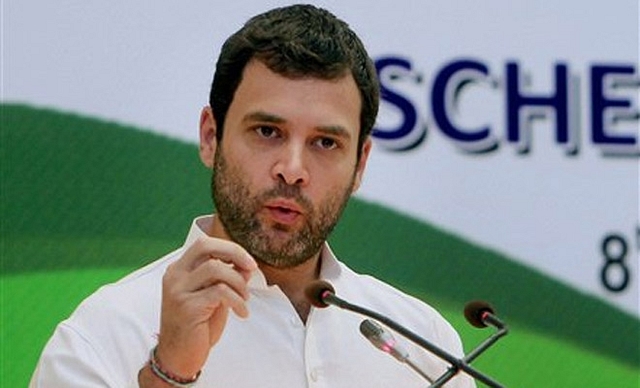
You Are Wrong, Mr. Gandhi. Congress' Socialism Has Also Killed Millions
While China’s meteoric rise and reckless policies led to the death of millions of its people, India’s romance with socialism has also resulted in more or less the same.
Addressing management students of the Narsee Monjee Institute of Management Studies (NMIMS) in Mumbai today, Rahul Gandhi said that the Chinese people have paid a huge price for what China has achieved in terms of economic progress.
Millions of people paid for it with their lives (In China). We didn’t kill millions of people. I am much happier to live in India… China is a stronger country but India will move ahead.
Rahul is right that millions died in China, most of them during Mao’s cultural revolution. The economic revival came much later, in 1978. But even then many had to pay the price for China’s thirst for splintering growth. Though, the economic reforms which were initiated in 1978 have lifted more than 500 million people out of poverty – an unprecedented feat achieved in just three decades, it has come at a huge price.
But Rahul is wrong on India. The Indian state didn’t actively participate in a genocide of its people, like in China, but that doesn’t mean that people didn’t suffer or die. Mr. Gandhi’s party in general and his family, in particular, are to blame for much of the death and despair millions had to suffer in socialist-secular raj, established by Pandit Nehru and nurtured by Indira Gandhi.
While China’s meteoric rise and reckless policies led to the death of millions of its people, India’s romance with socialism has also resulted in more or less the same.
Swaminathan Aiyar wrote a paper in 2009 in Cato titled: Socialism Kills: The Human Cost of Delayed Economic Reforms in India. Aiyar explains in his paper, that the conditions for economic reforms were ripe in 1971. But they were delayed for a decade. Whole-hearted reforms came much later, in 1991. His paper seeks to estimate the number of “missing children,” “missing literates,” and “missing non-poor” resulting from delayed reform, slower economic growth, and hence, slower improvement of social indicators.
Had the economic reforms started a decade earlier, finds Aiyar:
…..14.5 million more children would have survived, 261 million more Indians would have become literate, and 109 million more people would have risen above the poverty line. The delay in economic reform represents an enormous social tragedy. It drives home the point that India’s socialist era, which claimed it would deliver growth with social justice, delivered neither.
Mr. Gandhi should read this paper, not just to understand the passive death and misery that his party and family inflicted on millions of poor, but also to understand a little bit of history and get some perspective. Then he would not make such tall claims and think twice before brandishing his party’s pro-poor credentials with such brazenness.